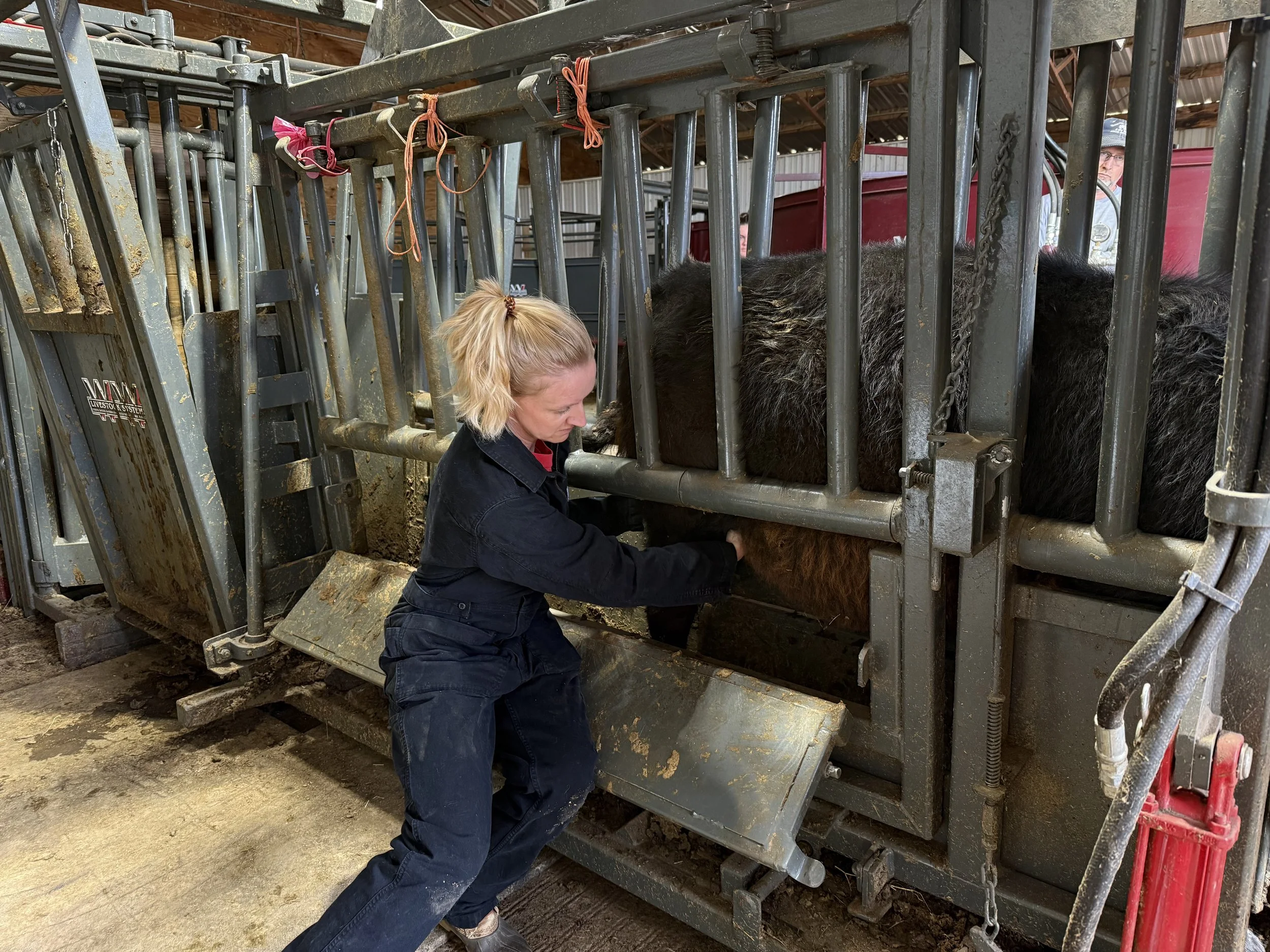Lab Personnel
Emily McDermott
Principle Investigator
BS. Entomology, The Ohio State University (2012)
PhD. Entomology, University of California, Riverside (2016)
Originally from Cape Cod, MA, Emily received her BS in entomology from The Ohio State University in 2012 and completed her dissertation on Culicoides biting midges and bluetongue virus at the University of California, Riverside in 2016. She was awarded a National Research Council Fellowship to conduct her postdoctoral work on Zika and Dengue virus co-infections in Aedes mosquitoes at the Walter Reed Army Institute of Research (WRAIR). Prior to joining the faculty at the University of Arkansas, Emily served as the Senior Scientist of the Vector Control Department, Entomology Branch at WRAIR.
Blythe E. Bunkers
PhD Candidate
MS. Cell & Molecular Biology, The University of Arkansas (2020)
BS. Biology, The University of Arkansas (2018)
AS. Biology, Scottsdale Community College (2013)
Prior to obtaining her MS in Cell and Molecular Biology from the University of Arkansas, Blythe began her career in health care where she worked in the operating room under her nursing assistant license while completing her BS in Biology. Blythe completed her master’s thesis on a specific virulence factor of Clostridium difficile, as her interests lie in infectious disease dynamics. She then served the Cherokee Nation by preforming environmental Covid-19 testing as part of a public health initiative during the pandemic. She is now a PhD student focused on investigating novel pesticide treatments, vector control, and host-pathogen interactions.
Cassandra Steele
PhD Candidate
BS. Zoology, University of Maine (2019)
Cassie grew up in Maine and attended the University of Maine, just north of her hometown, for a BS in Zoology. As an undergraduate student, she worked in a medical entomology lab trapping mosquitoes in residential neighborhoods in Bangor, Maine, and comparing the effects of mosquito development in native versus invasive plant habitats. She presented her work at the University of Maine symposium. Following graduation, she worked in the Bahamas for a month collecting mosquitoes on the island of Eleuthera, and when she returned to the states, began working in a vector control lab at the Walter Reed Army Institute of Research (WRAIR) in Maryland. There, she conducted mosquito surveillance and toxicity studies. At the University of Arkansas, she is interested in surveying the Culicoides population in the state and testing them for hemorrhagic diseases.
Evelyn Madrigal
MS Student
AS. Interdisciplinary Studies, South Texas College (2021)
BS. Biology, University of Texas Rio Grande Valley (2025)
Before beginning her graduate studies in veterinary entomology at the University of Arkansas, Evelyn earned her Bachelor of Science in Biology from The University of Texas Rio Grande Valley, where she participated in research programs supported by the USDA and NSF. Her work has explored host-plant interactions, vector biology, and high-containment viral diagnostics, including her NLTP fellowship at the Biosecurity Research Institute where she conducted viral assays for Bluetongue Virus (BTV). Evelyn’s passionate about serving her unrepresented community and improving animal health, she aims to become one of the few Mexican American veterinarians in her region.
Brayden Letterman
Research Assistant
BS. Biology, Pittsburg State University (2023)
MS. Biology, Pittsburg State University (2025)
Brayden grew up in Pittsburg, KS and stayed for school, where he earned a BS in Biology and MS in Biology at Pittsburg State University. As an undergraduate student, he did field work collecting ticks for a collaborative project updating tick phenology and distribution across the central Great Plains. As a graduate student, he continued studying ticks, collaborating with the Kansas Department of Health and Environment (KDHE) to update tick-borne disease data for public recreational areas in southeast Kansas. He also previously worked as a medical lab technician at Cytocheck Laboratory where he tested for STIs and COVID-19. At the University of Arkansas, he is interested in studying the role Amblyomma maculatum endosymbionts play in disease transmission.
Cameron Osborne
Postdoctoral Researcher
BS. Biological Sciences, University of California, Davis (2013)
MS. Biology, California State University, Fresno (2018)
PhD. Entomology, Kansas State University (2023)
Cameron was born and raised in Fresno, California and grew up with a love for animals and bugs. He was pre-vet during his time at UC Davis and began research on Culicoides biting midges while finishing his BS. For his MS, Cameron studied elusive soft-ticks and their associated Borrelia pathogens around his home town. Cameron’s PhD project brought him back to Culicoides with a focus on developing molecular-based (RNAi) insecticides against larval midges. Cameron’s primary research areas include arthropod and pathogen surveillance and developing control methods to protect animal and human welfare.
Mahnoor Ahsan
Program Associate
BS. Forensic Molecular Biology and Biomedical Science, University of Central Oklahoma (2023)
Mahnoor earned a dual degree in Forensic Molecular Biology and Biomedical Science from the University of Central Oklahoma. As an undergraduate she worked as a research assistant in the cell biology lab studying the effects of dandelion extract on cervical cancer cell lines. She gained hands-on work experience in the microbiology department at DNA Solutions, where she specialized in identifying unknown fungal and bacterial organisms via Sanger sequencing.
“I am driven by a passion for research and innovation and I am eager to enhance my knowledge and skills to advance scientific understanding and develop solutions to complex biological problems.”
Catherine Harrison
Undergraduate Honors Student
“The study of transmission of Anaplasma marginale and Theileria from biting flies to cattle”
Naija Sharpley
Undergraduate Research Assistant
Former Students
Parker Mullins (MS, 2024)
”Interactive effects between bluetongue virus infection and insecticide exposures in Culicoides sonorensis”
Nicole McIlvain (Honors, 2025)
”The prevalence of feline cytauxzoonosis in different tick species from the Northwest Arkansas and Wichita, Kansas areas”








